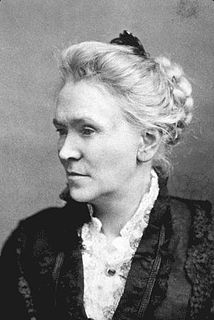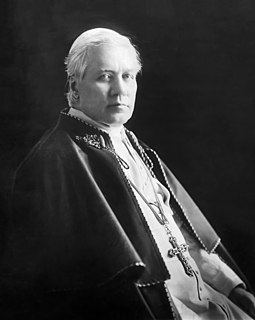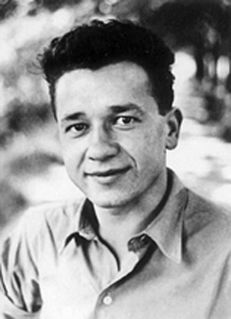A Quote by Thomas Jefferson
The advocate of religious freedom is to expect neither peace nor forgiveness from [the clergy].
Quote Topics
Related Quotes
Where there is Love and Wisdom, there is neither Fear nor Ignorance.
Where there is Patience and Humility, there is neither Anger nor Annoyance.
Where there is Poverty and Joy, there is neither Cupidity nor Avarice.
Where there is Peace and Contemplation, there is neither Care nor Restlessness.
Where there is the Fear of God to guard the dwelling, there no enemy can enter.
Where there is Mercy and Prudence, there is neither Excess nor Harshness.
When the soul is naughted and transformed, then of herself she neither works nor speaks nor wills, nor feels nor hears nor understands; neither has she of herself the feeling of outward or inward, where she may move. And in all things it is God who rules and guides her, without the meditation of any creature.... And she is so full of peace that thought she pressed her flesh, her nerves, her bones, no other thing come forth from them than peace.
Fear destroys intimacy. It distances us from each other; or makes us cling to each other, which is the death of freedom.... Only love can create intimacy, and freedom too, for when all hearts are one, nothing else has to be one--neither clothes nor age; neither sex nor sexual preference; race nor mind-set.
I am the greatest advocate of the Constitution....The only fault I find with the Constitution is, it is not broad enough to cover the whole ground. Although it provides that all men shall enjoy religious freedom, yet it does not provide the manner by which that freedom can be preserved, nor for the punishment of Government officers who refuse to protect the people in their religious rights, punish those mobs, states, or communities who interfere with the rights of the people on account of their religion. Its sentiments are good, but it provides no means of enforcing them.
And for a disciple thus freed, in whose heart dwells peace, there is nothing to be added to what has been done, and naught more remains for him to do. Just as a rock of one solid mass remains unshaken by the wind, even so, neither forms, nor sounds, nor odors, nor tastes, nor contacts of any kind, neither the desired, nor the undesired, can cause such an one to waver. Steadfast is his mind, gained is deliverance.
It has not been without bitter resistance by the clergy that woman's property and educational rights have advanced. Woman's anti-slavery work, her temperance work, her demand for personal rights, for political equality, for religious freedom and every step of kindred character has met with opposition from the church as a body and from the clergy as exponents of its views.
No government has the right to decide on the truth of scientific principles, nor to prescribe in any way the character of the questions investigated. Neither may a government determine the aesthetic value of artistic creations, nor limit the forms of literacy or artistic expression. Nor should it pronounce on the validity of economic, historic, religious, or philosophical doctrines. Instead it has a duty to its citizens to maintain the freedom, to let those citizens contribute to the further adventure and the development of the human race.
...the great movement of apostasy being organized in every country for the establishment of a One-World Church which shall have neither dogmas, nor hierarchy, neither discipline for the mind, nor curb for the passions, and which, under the pretext of freedom and human dignity, would bring back to the world (if such a Church could overcome) the reign of legalized cunning and force, and the oppression of the weak, and of all those who toil and suffer. [...] Indeed, the true friends of the people are neither revolutionaries, nor innovators: they are traditionalists.
The great writers to whom the world owes what religious liberty it possesses, have mostly asserted freedom of conscience as an indefeasible right, and denied absolutely that a human being is accountable to others for his religious belief. Yet so natural to mankind is intolerance in whatever they really care about, that religious freedom has hardly anywhere been practically realised, except where religious indifference, which dislikes to have its peace disturbed by theological quarrels, has added its weight to the scale.
At the still point of the turning world. Neither flesh nor fleshless; Neither from nor towards; at the still point, there the dance is, But neither arrest nor movement. And do not all it fixity, Where past and future are gathered. Neither movement from nor towards, Neither ascent nor decline. Except for the point, the still point, There would be no dance, and there is only the dance.

































